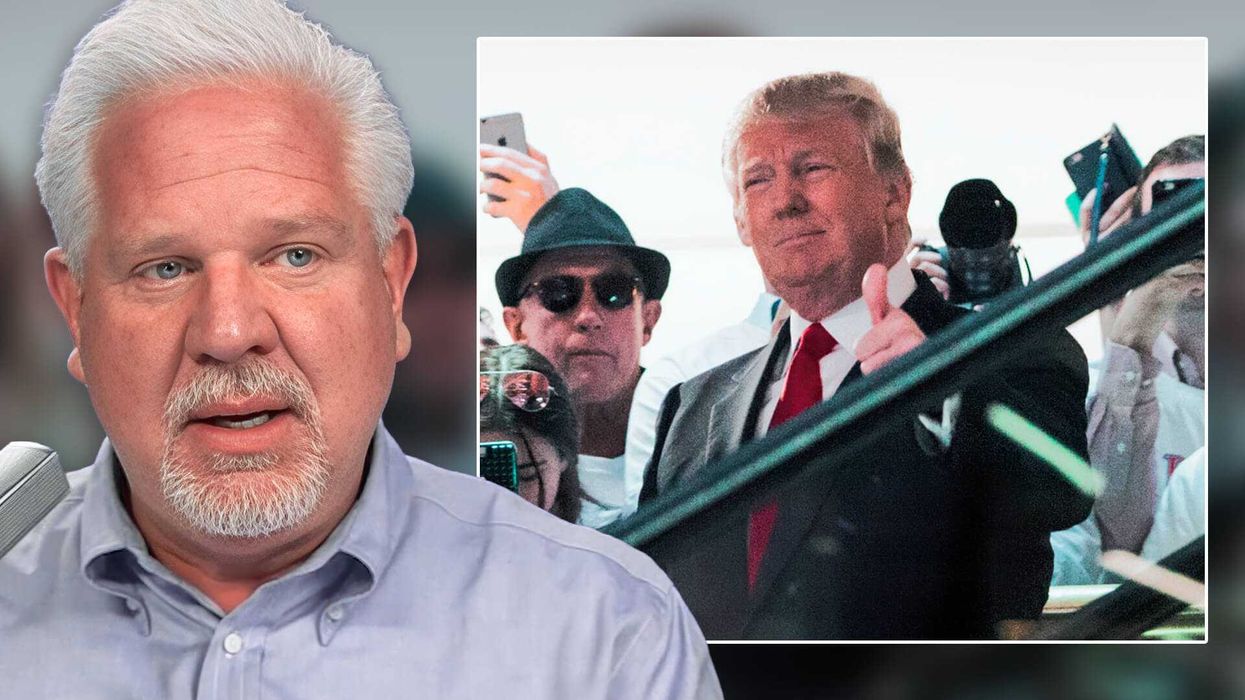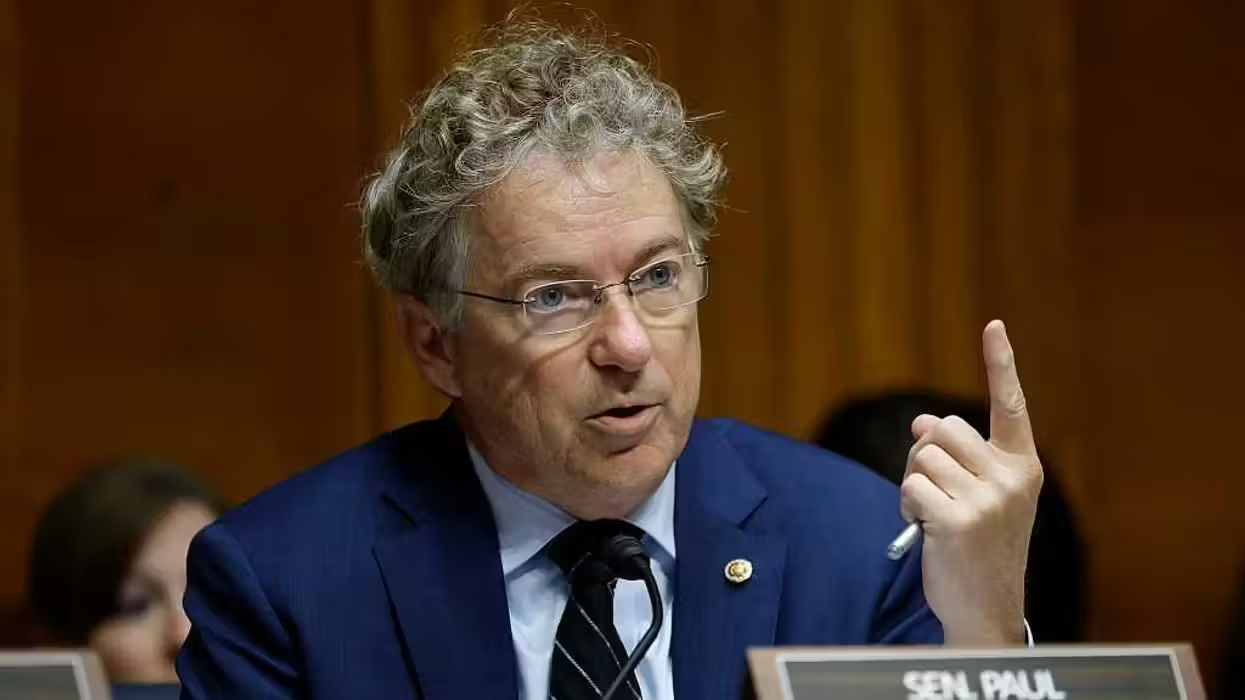The Minister Louis Farrakhan's latest sermon to capture headlines led the Anti-Defamation League and other Jewish groups to condemn his patently anti-Semitic statements. And following the fiery speech, amid controversy, a congressman who was in attendance has come forward to publicly repudiate Farrakhan's comments -- and to apologize.
Such language as "Satanic Jews" and "Synagogue of Satan" is nothing new for the Nation of Islam leader, but when prominent politicians are in attendance while he's making these comments, the dynamic presents an intriguing, and some would argue troubling, situation. As previously reported by TheBlaze's Sharona Schwartz, the May 17th event, held at Fellowship Chapel in Detroit, Michigan, had some popular leaders in the audience.
Among them: Rep. John Conyers (D-Michigan) and Detroit City Councilwoman JoAnn Watson. The Detroit Free Press said that Conyers and Watson nodded in agreement during portions of Farrakhan's speech, although the exact comments they appeared to be agreeing with weren't divulged.
 Rep. John Conyers (D-MI) (L) and Rep. Ted Poe (R-TX) (R) hold a news conference on H.R.1962, the 'Free Flow of Information Act of 2013', May 22, 2013 in Washington, DC. The bill would protect reporters from having to reveal their sources in federal court, with some exceptions including specific threats to national security. Credit: Getty Images
Rep. John Conyers (D-MI) (L) and Rep. Ted Poe (R-TX) (R) hold a news conference on H.R.1962, the 'Free Flow of Information Act of 2013', May 22, 2013 in Washington, DC. The bill would protect reporters from having to reveal their sources in federal court, with some exceptions including specific threats to national security. Credit: Getty Images
Now, nearly one week after the speech, Conyers is denouncing the faith leader's "racist" and anti-Semitic remarks. On Thursday, the congressman issued a statement, CBS Detroit reports. He also called the minister's comments "homophobic" and said that he condemns them "in the strongest possible terms." Here is Conyers' statement, as published by the Detroit Free Press:
“Farrakhan made unacceptable racist, anti-Semitic and homophobic statements, which I condemn in the strongest possible terms. It was my expectation that Minister Farrakhan’s speech would focus on the many challenges facing the city of Detroit. In previous days, he had discussed efforts to revitalize our city by purchasing property and investing in blighted neighborhoods. Regrettably, he used this opportunity to promote views that have no place in civilized discourse.
The fact that Minister Farrakhan has engaged in important charitable work aimed at expanding economic opportunities for underserved communities does not excuse these statements. I sincerely offer my apologies to my constituents and others who also may have been offended by the minister’s words.”
While he apologized for being at the speech, some will likely still be wondering at which points he was purportedly nodding his head -- and how much negative public reaction to the speech played a role, if at all, in his apology.
Sharon Lipton, president of the Jewish Community Relations Council, applauded Conyers for saying he was sorry, but noted that he shouldn't have been at the speech in the first place. Lipton also noted that it wasn't good that it took the congressman nearly a week to apologize.
 Nation of Islam leader Louis Farrakhan speaks to Detroit City Council on Friday, May 17, 2013 in Detroit. Farrakhan said it's time for his movement to join others to invest in the struggling city where it was founded more than 80 years ago. He called on residents and religious leaders to "pool their resources" to buy distressed properties and create economic opportunities. Credit: AP
Nation of Islam leader Louis Farrakhan speaks to Detroit City Council on Friday, May 17, 2013 in Detroit. Farrakhan said it's time for his movement to join others to invest in the struggling city where it was founded more than 80 years ago. He called on residents and religious leaders to "pool their resources" to buy distressed properties and create economic opportunities. Credit: AP
"I think that people in public office have to be very aware of where they’re going, what they’re doing, and what the perception might be for being in a certain place at a certain time," Lipton told CBS Detroit.
Read the original report about Farrakhan's controversial sermon.
(H/T: CBS Detroit)
--
[related]

 Rep. John Conyers (D-MI) (L) and Rep. Ted Poe (R-TX) (R) hold a news conference on H.R.1962, the 'Free Flow of Information Act of 2013', May 22, 2013 in Washington, DC. The bill would protect reporters from having to reveal their sources in federal court, with some exceptions including specific threats to national security. Credit: Getty Images
Rep. John Conyers (D-MI) (L) and Rep. Ted Poe (R-TX) (R) hold a news conference on H.R.1962, the 'Free Flow of Information Act of 2013', May 22, 2013 in Washington, DC. The bill would protect reporters from having to reveal their sources in federal court, with some exceptions including specific threats to national security. Credit: Getty Images






